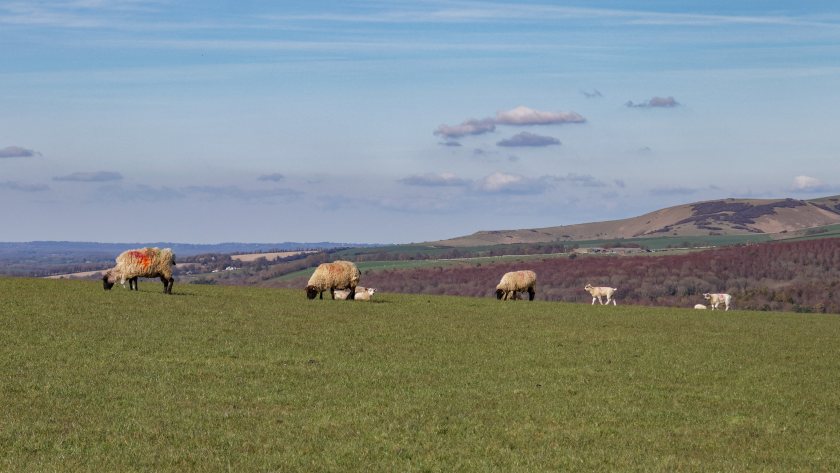
The government has announced a 'restricted zone' covering the whole of East Yorkshire and parts of Lincolnshire following confirmation of more bluetongue cases.
Further cases of bluetongue virus 'BTV-3' have been detected in livestock in the counties, Defra said in its latest update on the situation.
The temporary control zone (TCZ), in place prior, has been replaced with a tougher restricted zone, meaning livestock keepers must follow restrictions on animal and germinal product movements.
Both counties have also been designated 'high risk', meaning farmers in the parts of Lincolnshire not covered by the zone are eligible for free testing.
Farmers in these counties are also eligible to vaccinate their animals using the new general licence, which was approved earlier this month.
Elsewhere in the UK, the restricted zone in Kent has been extended to cover all of the county, East Sussex and more of Greater London following an uptick in cases.
According to the latest figures, a total of 69 farms have been affected by bluetongue following confirmation of this summer's first case, in late August.
A total of seven counties across England - East Yorkshire, East Sussex, Norfolk, Suffolk, Essex, Lincolnshire and Kent - have recorded BTV-3 cases.
While parts of eastern Greater London are now in the restricted zone, it has yet to confirm an outbreak.
UK chief veterinary officer Christine Middlemiss said: “As the number of bluetongue cases continues to rise in England and northern Europe, we are taking prompt action to mitigate the spread of the disease.
“I urge farmers within bluetongue control zones to adhere to restrictions and remain vigilant to prevent the disease spreading to their herds.
“We appreciate the impact restrictions can have on farmers and are committed to working with everyone affected.
"We will continue to keep control zones under review as our understanding of the disease picture develops.”
It follows confirmation of the disease in a single sheep on a farm in Norfolk in late August, which made it the first UK bluetongue case this summer.
Before this, in November 2023, government vets identified the first case of the disease in Britain since 2007.
The worsening situation follows the government's decision to permit the use of three bluetongue vaccines to curb infections.
The vaccines are suppressive, meaning they will reduce some of the clinical signs experienced by animals with the disease, but they do not prevent infection.
Bluetongue is a non-contagious, viral disease affecting domestic and wild ruminants, transmitted by biting midges.
It does not affect people or food safety, but outbreaks can result in prolonged animal movement and trade restrictions.
BTV is a notifiable disease. Suspicion of it in animals in England must be reported to the Animal and Plant Health Agency on 03000 200 301.
